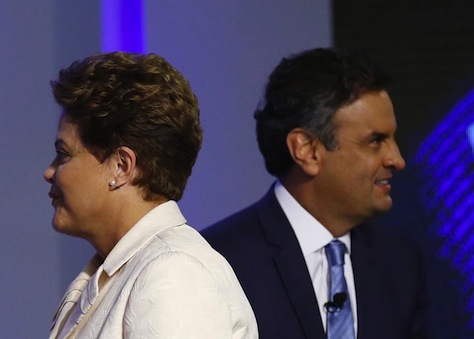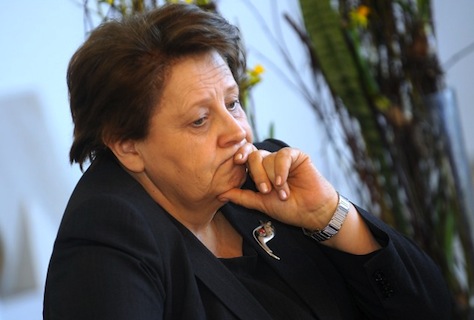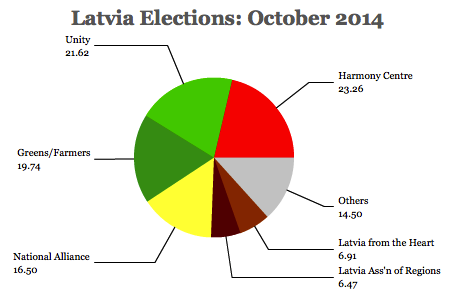 Photo credit to Pedro Ladeira/Folhapress.
Photo credit to Pedro Ladeira/Folhapress.
What the hell happened to Marina Silva’s presidential campaign?![]()
In the 2010 presidential election, Silva came out of nowhere to win 19.33% of the vote.
In 2014, she looked like she might win it all.
Instead, she blew what seemed like an insurmountable path to the October 26 runoff, falling into third place with just 21.32% of the vote, more than 10% behind the second-place finisher. That’s just under 2% more than she won four years ago.
When Brazilians choose their next president in three weeks, they’ll choose between the incumbent, Dilma Rousseff, and the center-right former governor of Minas Gerais, Aécio Neves. Silva, now a two-time presidential loser, will be watching from the sidelines (though she’ll have at least some power as a kingmaker in what could be the closest presidential runoff in Brazilian politics since 1989).
* * * * *
RELATED: In Depth — Brazil
RELATED: Neves will face Rousseff in runoff
* * * * *
Fate — in the form of a tragic airplane crash — initially brought her into the 2014 presidential race, when her running mate Eduardo Campos’s plane crashed on the southern Brazilian coast on August 13.
Silva had wanted to make a second presidential bid all along, and polls showed that she was the most popular of Rousseff’s potential opponents. When her attempts to form a new party failed, Silva partnered with Campos, joining his center-left Partido Socialista Brasileiro (PSB, Brazilian Socialist Party) and serving as the party’s vice presidential candidate. In mid-August, she became the only clear choice to replace Campos on such short notice.
She peaked in late August, when a Datafolha poll showed Silva tied in the first round with Rousseff at 34%, Neves trailing with just 15%, and leading Rousseff with a nearly double-digit margin in a potential runoff.
Despite leading in the polls, despite having the support of a much stronger party organization in 2014, despite running a much more disciplined and politically moderate campaign and despite the sympathy of Brazilians mourning Campos, Silva failed.
So what happened? Here are five reasons that explain just why Silva will be sitting out the next round. Continue reading Brazil election results: Five reasons why one-time frontrunner Silva tanked




